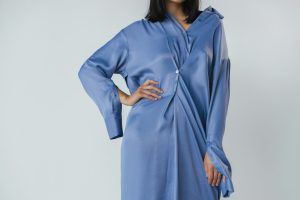Fashion Designers Embracing Ethical Labor Practices Today
In today’s rapidly evolving fashion industry, the topic of ethical labor practices has become a major point of discussion. Consumers are becoming increasingly aware of the impact their clothing choices have on the environment and the people involved in the production process. As a result, we are seeing a rise in the number of fashion designers who are taking active steps to embrace ethical labor practices in their designs and production. This trend is not only positively impacting the industry but also empowering consumers to make more conscious and responsible fashion choices. Let’s delve into the ways in which fashion designers are embracing ethical labor practices today.
The Need for Ethical Labor Practices
Before we dive into how fashion designers are embracing ethical labor practices, it’s important to understand why this movement has gained momentum in recent years. The fashion industry has a notorious reputation for its exploitative labor practices, particularly in developing countries where labor laws are not as stringent. From sweatshops to child labor, there have been numerous reports exposing the dark side of the fashion industry. This has led to growing concerns among consumers, who are becoming increasingly aware and conscious of the negative impact their clothing choices can have on people and the planet.
Transparency in the Supply Chain
One of the ways in which fashion designers are embracing ethical labor practices is by promoting transparency in their supply chain. This involves being open and honest about where their materials are sourced from, how their garments are produced, and under what conditions. By doing so, fashion designers are being held accountable for the labor practices involved in their production process. This also allows consumers to make informed decisions about the clothing they purchase, supporting brands that prioritize ethical labor practices.
Fair Wages and Working Conditions
Another aspect of ethical labor practices is ensuring fair wages and decent working conditions for the people involved in the production process. Fashion designers are increasingly taking steps to ensure that their workers are paid fair wages, have safe working conditions, and are provided with reasonable working hours. This not only protects the rights of workers but also promotes a healthy and sustainable approach to fashion production.
Empowering Artisans and Local Communities
Many fashion designers are also embracing ethical labor practices by collaborating with local artisans and communities. By working with skilled artisans, designers are able to preserve traditional craftsmanship and support local communities. This also provides a platform for artisans to showcase their skills and elevate their livelihoods.
Incorporating Sustainable Materials
Ethical labor practices go hand in hand with sustainable fashion. Designers are now incorporating sustainable materials, such as organic cotton and recycled fabrics, in their collections. These materials not only have a lower environmental impact but also promote ethical labor practices by reducing the need for harmful chemicals and pesticides in production.
Educating Consumers
Fashion designers are also playing a major role in educating consumers about the importance of ethical labor practices. Many brands are now transparently sharing information about their sustainable and ethical practices on their websites and social media platforms. This helps consumers to make more informed choices and encourages them to support brands that prioritize ethical labor practices.
Conclusion
In conclusion, ethical labor practices are becoming increasingly important in the fashion industry, and fashion designers are at the forefront of this movement. By promoting transparency, fair wages, sustainable materials, and collaboration with local communities, designers are taking active steps to create a more ethical and sustainable fashion industry. As a consumer, it is important to support and advocate for brands that prioritize ethical labor practices, and as fashion designers, it is our responsibility to continue to embrace these practices in our designs and production processes.










